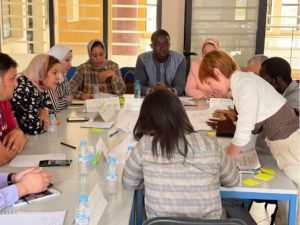Equal Partnerships – African Intermediary Cities as Actors and Partners in Urban Migration Governance
Das Projekt Equal Partnerships hat ein neues Policy Paper herausgegeben mit konkreten Handlungsempfehlungen für den Aufbau und Erhalt von multistakeholder Partnerschaften im Umgang mit Flucht und Migration in afrikanischen Städten. Vorgestellt wurde das Paper von Janina Stürner-Siovitz auf dem internationalen Global Forum on Migration and Development Ende Januar in Genf.
Verfügbar ist es auf Englisch, Französisch und Arabisch unter folgendem Link: https://equal-partnerships.com/policy-paper/
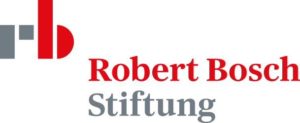
Africa is witnessing an ongoing transformation from a rural to an increasingly plural urban society. While this transformation has been well-documented, the focus of scholarship and practice has been predominantly on human mobility towards and into major urban areas and capital cities. In contrast, intermediary cities, the in-between the rural and the metropolitan, have been largely absent in academic and policy debates.
With the adoption of the “Charter of local and subnational governments of Africa on migration” in 2018, over 30 local and regional governments emphasized that mixed migration could be a catalyst for socio-economic development if local governments had the necessary means and partners to implement inclusive and cross-sectoral approaches. In parallel, there is a growing interest among international organizations, national governments and civil society actors to explore possibilities for collaboration with local authorities. Nevertheless, knowledge and cooperation gaps remain between local, national and international actors.
Equal Partnerships Project: Partners and Objectives
The Equal Partnership project explores the opportunities and challenges of collaborative, urban migration governance in African intermediary cities. The project is coordinated by the Research on Migration, Displacement and Integration (MFI) team at the FAU and implemented in collaboration with the German Institute of Development and Sustainability (IDOS), the think tank Samuel Hall and the city network United Cities and Local Governments of Africa (UCLG Africa). Funded by the Robert Bosch Stiftung, the project works in cooperation with six cities from East, North and West Africa. Through participatory research and dialogue formats, the project brings together local, national and international actors to develop practical impulses and policy recommendations for equal partnerships of urban migration governance in African intermediary cities.
Find city reports and multi-stakeholder mappings from our research partnerships with Garissa (Kenya), Gulu (Uganda), Kumasi (Ghana), Oujda (Morocco), Saint-Louis (Senegal) and Sfax (Tunisia) on the Equal Partnerships website. The website furthermore presents videos, blog posts, policy papers and podcast episodes exploring different aspects of multi-stakeholder partnerships for urban migration governance in intermediary cities: https://equal-partnerships.com/
International Africities Workshop: Placing Equal Partnerships for Urban Migration Governance High on the Agenda
In May 2022, the project collaborated with the Mixed Migration Centre to organize an international workshop at the ninth Africities Summit in Kisumu, Kenya placing equal partnerships for urban migration governance high on the agenda. The 9th Africities Summit assembled over 11.000 participants – among them African ministers, mayors and elected officials of local and regional governments, civil society organizations, traditional authorities, representatives of the African diaspora, researchers, financial institutions and development partners. Organized every three years, Africities, the flagship event of the city network UCLG Africa, addresses major questions of the Agenda 2063 and the Agenda 2030, aiming to strengthen the role of local and regional governments in these regional and international development frameworks. In this sense, the Equal Partnerships workshop was thematically situated at the interface of the Global Compacts for Migration and Refugees and the African Local Migration Charter. Bringing together over 50 representatives from cities all over Africa, international organisations, national governments as well as migrant and refugee-led associations, the workshop served as a platform to develop action-oriented recommendations. For detailed information on central workshop outcomes, please consult the following blog post written in cooperation with the Mixed Migration Centre: African intermediary cities are key actors for partnerships on urban migration governance.
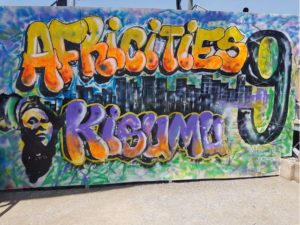
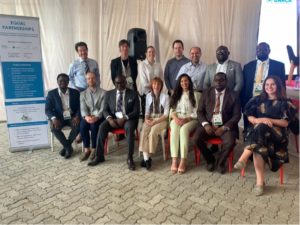
Participatory field research: Mapping actors and developing recommendations for multi-stakeholder partnerships on the ground
Guided by central Africities workshop conclusions, research teams from the FAU, IDOS and Samuel Hall engage in participatory field research with six city partners from 2022 to 2023. This research maps local, national and international actors addressing diverse questions of migration and displacement in the respective cities as well as dynamics of (non-)cooperation. The research thus focuses on factors that hinder, encourage or motivate local authorities to engage on questions of migration and displacement. Moreover, we juxtapose perspectives on partnership opportunities held by local, national and international stakeholders operating in these cities and explore practical potentials and limits of cooperation strategies. Each research phase concludes with the organization of a local workshop to validate findings and co-shape city-specific next steps as well as transferable/scalable recommendations. In 2022, field research was conducted in cooperation with local and regional authorities in Garissa, Kenya, in Gulu, Uganda and in Oujda, Morocco.
City of Gulu: Providing urban refuge in a complex context of long-term displacement
Gulu is among Uganda’s fastest growing intermediary cities. With a city population above 150.000 inhabitants and more than 275.000 in the wider district (2014 National Census), Gulu is the largest urban center in the Northern Region of Uganda. Gulu is both the commercial and administrative centre of the Gulu District, while also functioning as a cultural, educational, trade and commercial hub for the wider Acholi region. Gulu is further situated at a strategic crossroads at the junction to other cities in Northern Uganda, to South Sudan, Kenya, the Democratic Republic of Congo, and the Central African Republic. In consequence, the city experiences a complex context of mixed movements. Five main factors contribute to these dynamics: long-term displacement resulting from the Ugandan civil war, refugees fleeing conflicts in neighbouring countries, rural-urban migration, urban-urban migration as well as international migration to Gulu for educational and/or economic opportunities.
The local workshop organized by FAU researchers in cooperation with local authorities and scholars focused therefore in particular on crosscutting topics that affect diverse mobile populations as well as vulnerable locals. Representative from local authorities, civil society and international organisations developed recommendations and concrete next steps to strengthen cooperation and partnerships on questions of urban refuge, gender-based violence, mental health support and linking vocational training with employment opportunities.
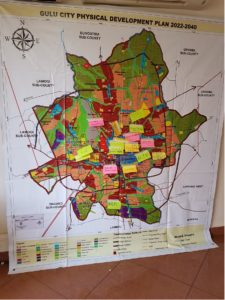
City of Oujda: Reconciling social cohesion and high mobility
With a population of approximately 500.000 inhabitants, Oujda is the regional capital of the Eastern Moroccan region Oriental. The city’s geographic position in close proximity to both the Algerian border (13km) and the Mediterranean Sea (60km) makes it an important domestic (rural-urban), inter-regional, and international immigration and transit hub. Twenty percent of Morocco’s diaspora originates in the Oriental Region. Oujda has traditionally been considered as a transit hub for mixed migration movements from sub-Saharan Africa and the Middle East towards Europe. However, in the context of both the COVID-19 pandemic and European externalisation strategies, the city (and Morocco more broadly) is increasingly becoming a hosting site for migrants and refugees. These tend to travel between cities, thus creating a very mobile migration context.
Participants of the local workshop in Oujda focused their efforts for multi-stakeholder cooperation therefore particularly on the questions: How to foster social cohesion despite high mobility? How to move beyond an emergency mode and advance on socio-economic integration in a context of high irregularity? How to overcome misunderstandings and cooperation gaps resulting from the fact that public actors address mostly regular migration while civil society address irregular migration?
In 2023, the Equal Partnerships project organized further local workshops with local governments in Kenya, Senegal, Tunisia and Ghana. To ensure that the project’s final policy recommendations are developed and disseminated in dialogue with a wide range of initiatives interested in city agency on migration and displacement, the project actively seeks multi-level and multi-stakeholder interaction and engages in a wide range of research and practitioner dialogues.
